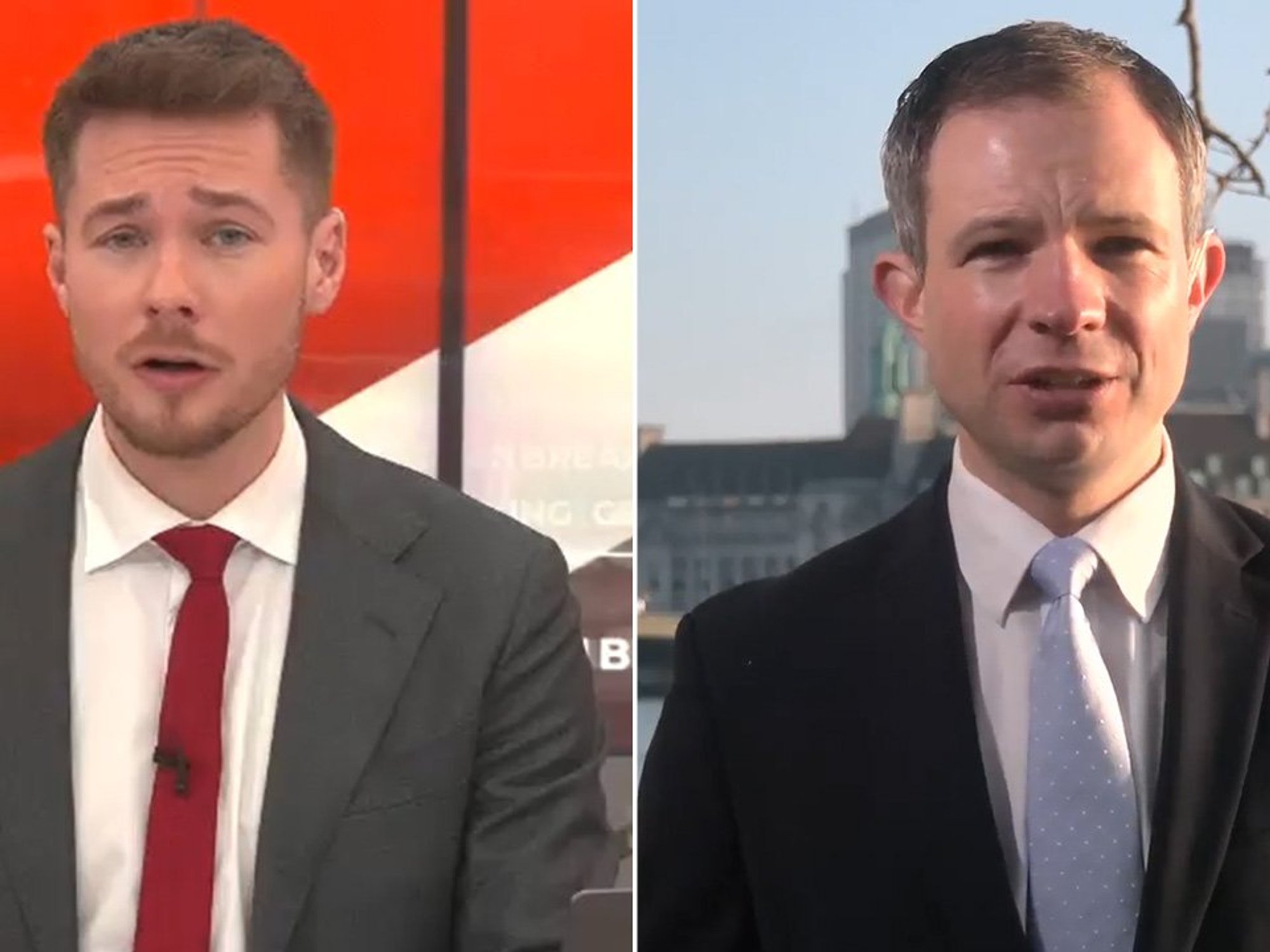HMRC deadline: Savers face 'paying tax for first time' on interest as only days left to prepare
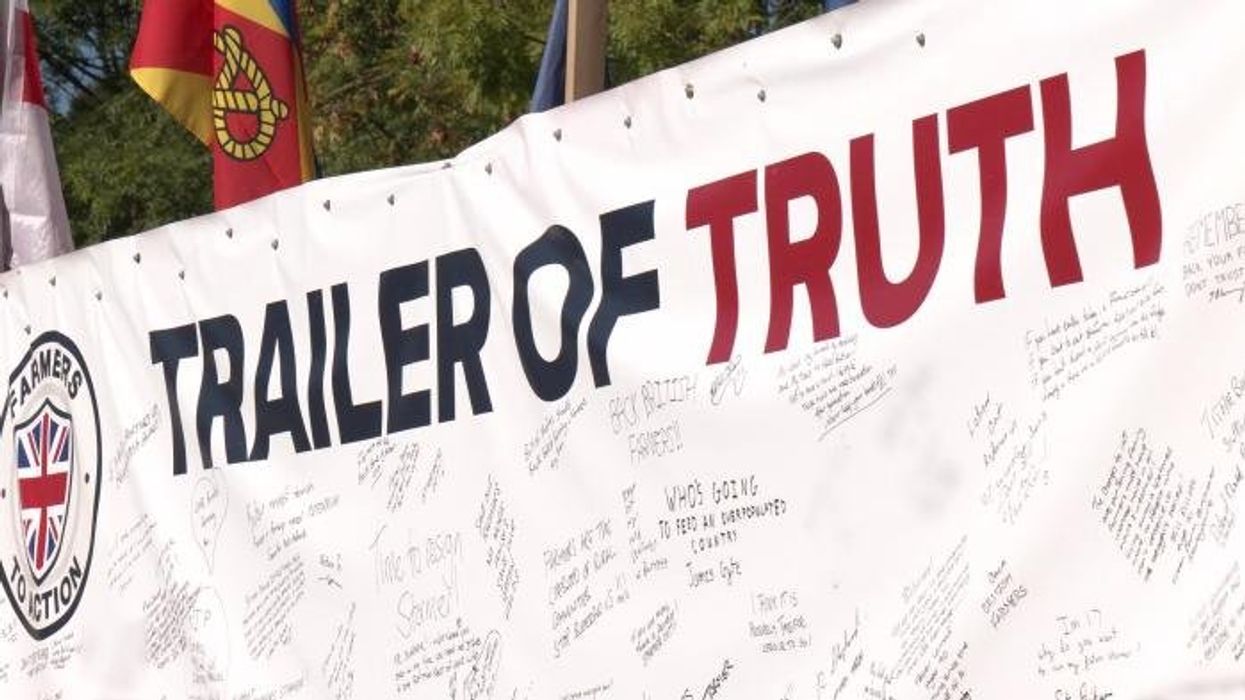
Farmers head to Labour Party Conference to protest inheritance tax changes and food security |
GB NEWS

Savers are being reminded they could be impacted by HMRC's Self Assessment deadline this week
Don't Miss
Most Read
Analysts are warning millions of Britons of their fiscal obligations ahead of an important deadline from HM Revenue and Customs (HMRC), which could see Britons hit by a "tax on savings for the first time".
The important date in question is October 5, which is the cut-off for Self Assessment registration. Failure to meet this deadline could result in unexpected tax bills for households with thousands of savers expected to be impacted for the first time.
An estimated 2.64 million individuals will owe tax on their savings interest in the 2025/26 tax year, a staggering increase from merely 647,000 in 2021/22, according to online financial institution Raisin.
This represents approximately one in every 25 basic-rate taxpayers and one in eight higher-rate taxpayers who will find themselves caught by the tax net.
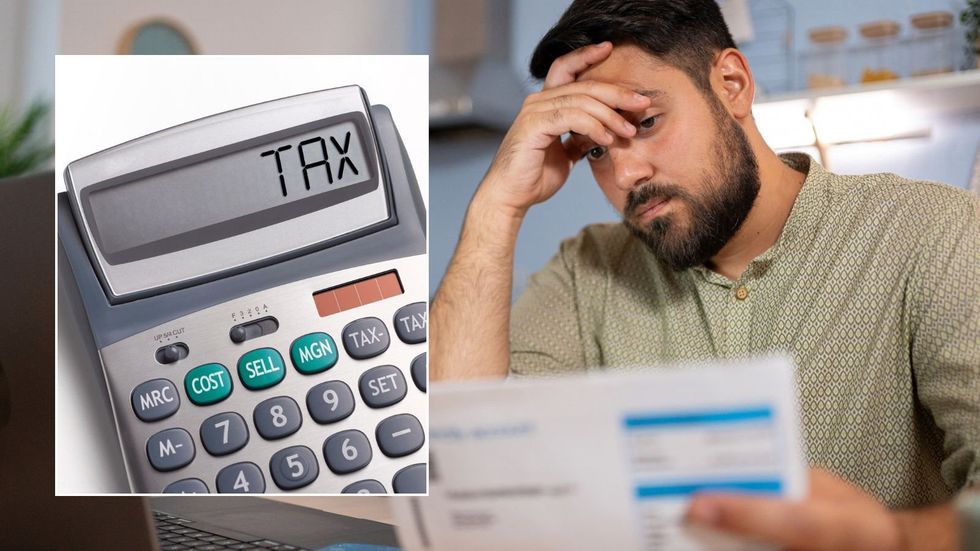
Savers could be hit with 'tax for the first time' on their interest
|GETTY
The dramatic shift stems from the combination of frozen tax allowances and interest rates hovering around five per cent.
As as a result of this, basic-rate taxpayers can receive £1,000 in interest annually without paying tax, whilst those in the higher-rate bracket have a £500 limit. Additional-rate taxpayers receive no allowance whatsoever.
When interest rates sat near zero before the Bank of England's 2021 rate increases, basic-rate taxpayers could maintain more than £150,000 in top-performing easy-access accounts without incurring tax.
Now, holding just £19,600 in accounts offering five per cent interest exhausts the entire allowance. Higher-rate taxpayers face an even lower threshold of £9,800.
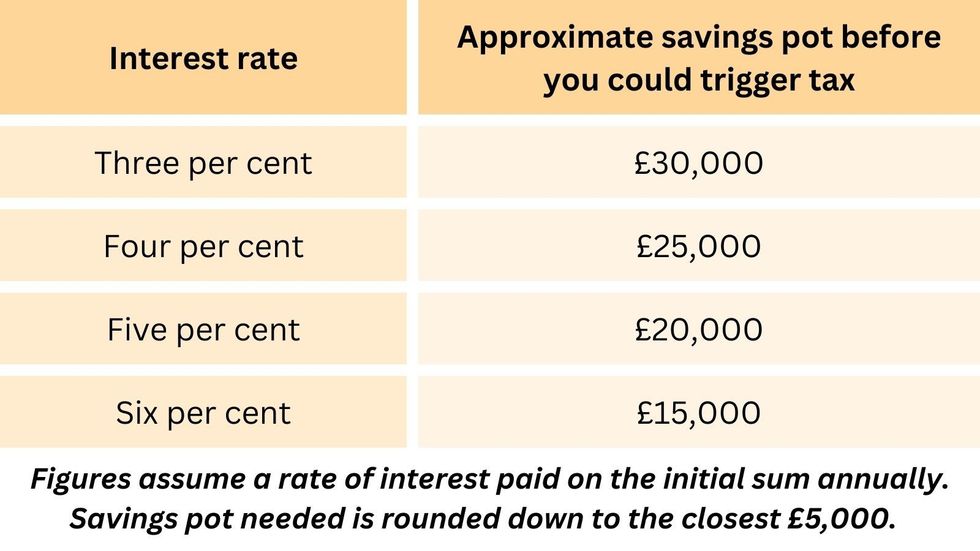 AJ Bell has created a rough guide on the size of savings pots which could be at risk of tax, according to different interest rates | AJ BELL | GB NEWS
AJ Bell has created a rough guide on the size of savings pots which could be at risk of tax, according to different interest rates | AJ BELL | GB NEWSThe Treasury stands to collect over £6billion from savings interest this year, representing a fourfold increase over five years.
Previously reserved for those with substantial wealth, the tax now impacts everyday households with modest nest eggs, according to critics of the levy.
The dramatic jump from 647,000 to 2.64 million taxpayers caught by these rules demonstrates how quickly the landscape has changed since interest rates began climbing.
Kevin Mountford, personal finance expert and co-founder of Raisin UK, warned that failing to meet the registration deadline could result in automatic penalties from HMRC, with additional fines of £100 or more for late returns.
He shared: "The October 5 registration deadline is a crucial date for anyone who needs to submit a self-assessment return.
"Missing it can mean automatic penalties from HMRC, with further fines of £100 or more if your return is late.
“What’s different now is that higher savings rates have completely changed the picture. You no longer need a six-figure nest egg to breach your allowance.
A basic-rate taxpayer with less than £20,000 in a competitive account could already be paying tax on their interest. For higher-rate taxpayers, the threshold is closer to £10,000.
LATEST DEVELOPMENTS:
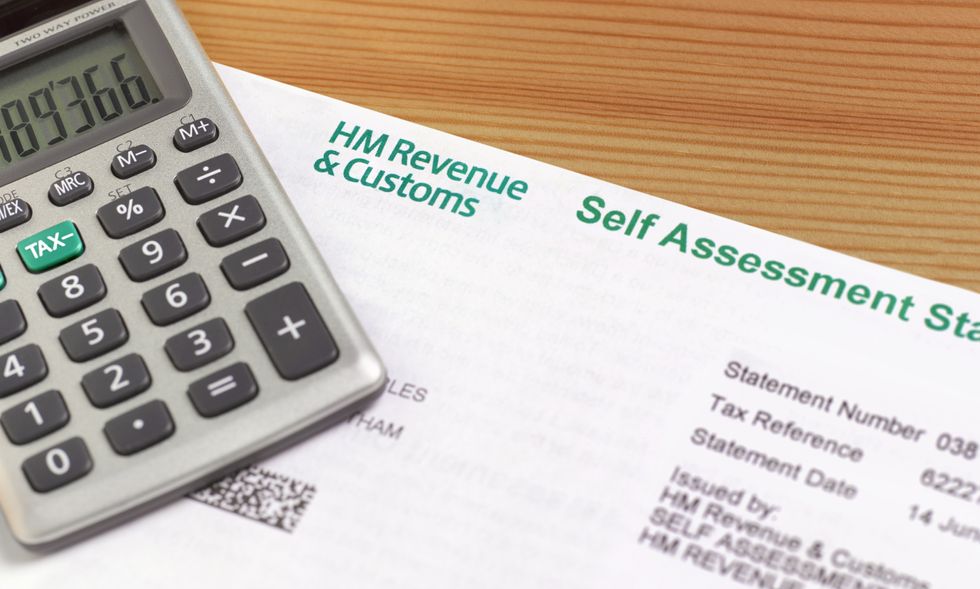 Self-employed individuals need to file their tax returns | GETTY
Self-employed individuals need to file their tax returns | GETTY“Many people simply will not realise they need to register until HMRC comes knocking. That can lead to nasty surprises like a reduced pay packet or pension payment when your tax code is adjusted.
"By registering before October 5, you give yourself time to get organised, claim any reliefs and avoid unnecessary financial setbacks.
“This is no longer just an issue for wealthy savers - everyday households are now at risk of handing over part of their hard-earned savings to the taxman.
"Making use of ISAs and reviewing where your money is held is more important than ever.”
More From GB News






